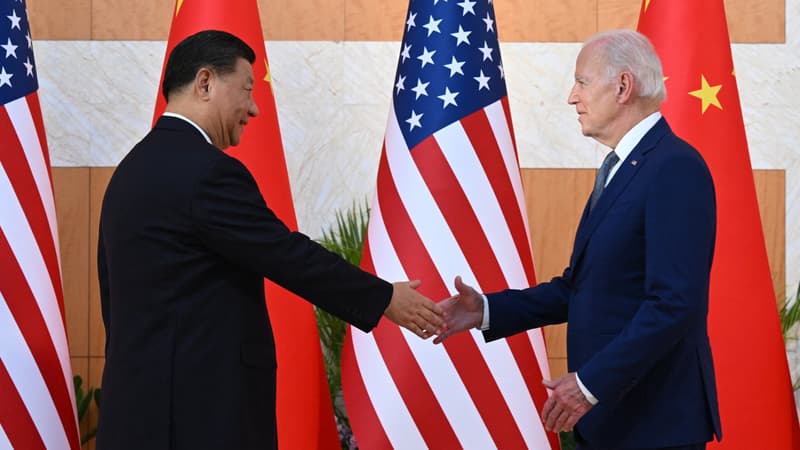In one way or another, during this 15th edition of the World Policy Conference, which is being held this year in Abu Dhabi (United Arab Emirates), the rivalry between the United States and China is of all discussions, on all sides.
In a session on the hypothesis of a “collapse of the international economic order”, Qiao Yide, general secretary of the Shanghai Development Research Foundation, raises the terms according to the benefits for his country of going or not in the direction of the policy of unilateral sanctions deployed by the Americans, as a way of managing international relations.
So why would Beijing endorse these punitive measures, particularly against Russia, when Washington has now officially made China the only “systemic adversary”? So to speak, in the words of this expert to the Chinese Ministry of Finance, there is basically nothing more to be gained from it.
taken in tweezers
Among the US’s main Asian industrial allies, concerns are mostly centered on the semiconductor sector. Taeho Bark, president of the Lee&Ko Institute for World Trade in Seoul, fears that with the Biden administration’s so-called Inflation Reduction Act (IRA), which structures financial support to localize chip production on US soil, we are “losing the opportunity”. reform all the rules on subsidies in this area. This former South Korean foreign trade minister expresses serious concerns, echoing those of the current government, of being caught between the budget largesse of the world’s two largest gross domestic products.
But it is an adviser to the European executive who has come to point out to his Asian interlocutors the novelty with the greatest consequences in his eyes: the regulatory arsenal promulgated by Washington on October 7, which aims to radically limit the sale of ‘chip production equipment’ ‘. to Chinese companies.
For the Japanese economist Motoshige Itoh, from the University of Tokyo, the concern must then be linked to a powerful desire for “centralization” in the United States of technological supply chains, through the manufacture of semiconductors. This former government adviser is not far from thinking that the Chinese will only reinforce his self-sufficiency argument.
Complete “decoupling”
South Korean diplomat Lee Hye Min, one of the main negotiators of his country’s free trade agreement with the European Union that came into force in 2011, also expresses deep fears for South Korean technology makers. They suffer there, according to him, a serious “distortion of the international trade order.”
In this specific Sino-US confrontation, which obscures other disputes, the World Trade Organization (WTO) stands by the observation that Beijing, however, does not seek to assert an alternative to the multilateral trading system as it exists. In any case, this is what the deputy director general of the institution, Jean-Marie Paugam, points out.
At his side, the American academic Jeffrey Frieden, a Harvard professor, evokes, instead, a “campaign of destruction” of the WTO led by his country. When Qiao Yide of the Shanghai Development Research Foundation prefers to argue that it is not China’s trade policies that have caused the rise of this “anti-globalization” adverse wave.
Large companies that are neither American nor Chinese would therefore have no choice but to compartmentalize, to move towards total “decoupling”. South Korean Lee Hye Min is no longer under any illusions: any South Korean high-tech group working with China will be forced to create a separate company there, strictly catering only to the Chinese market. Hoping to escape the wrath of the American authorities.
Source: BFM TV


